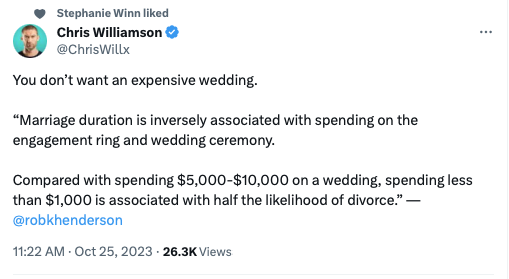One of today's bravest, most principled journalists, arguably the person best able to consistently and clearly analyze complex issues is Glenn Greenwald. I've followed his work for twenty years and I am repeatedly impressed with his ability to see the forest as well as the highly detailed trees. Glenn was a practicing civil rights attorney early in his career, which helps to explain his ability to discuss the intersection of current events within the existing legal framework. But he also has an outstanding understanding of history, which is a stark contrast with most journalists, who seem to thing that the only thing that matters is what happens today. If you haven't yet seen Glenn's show, System Update, I highly recommend that you give it a try.
I find myself writing recognition of Greenwald's talents and accomplishments today because I am about to rely on his work once again. Today, I found myself frustrated with nonstop U.S. warmongering, muttering to myself about the "neocons." I then stopped to ask myself "What, precisely is a neocon?" I'm going to quote Glenn Greenwald extensively here. He traces the history of neocons from their earlier peak of power, embedded as Republicans, plunging us into the tragic invasion of Iraq in 2003. They seemed to disappear after that abject failure, but somehow they are back in control in Joe Biden's Cabinet. Two prominent Iraq War architects, Victoria Nuland and Anthony Blinken, are now wearing Democrat costumes. They are in the process of plunging the U.S. into two (or more) new major wars of discretion? Why? Because they are neocons. Here's Glenn Greenwald, explaining the term:
One of the most extraordinary, alarming and baffling developments to witness in American politics is the complete rehabilitation of neoconservatives. Most Americans who know this term first learned of it in 2002 during the run-up to the American and British invasion of Iraq. The neocons were the most vocal and vehement advocates, not just of the invasion of Iraq, but more importantly, of the warmongering framework undergirding that attack, namely that the world is better off when the United States rules it, and especially the Middle East, through the application of superior military force, in essence, ordering all countries to do the bidding of the United States, always under the threat that failure to obey will result in attacks, invasions, bombings, regime change, coups and much more. This imperialistic and militaristic mindset was not exactly new.
This imperialistic and militaristic mindset was not exactly new. The U.S. fought wars, imposed tyrannies, and engineered coups all over the world, on every continent, during the Cold War and after but what distinguished neocons from standard warmongers and militarists were two qualities:
First, they have no other politics beyond their quest for endless war. Many neocons in fact began as liberals or even leftists and were willing to morph into anything they needed to be as long as doing so served the only issue they really cared about: placing the US in a state of endless war, almost always fought by other people's families and children rather than their own. Starting with the war in Iraq, a war they were craving and loudly demanding long before the 9/11 attacks – that attack became the pretext for the war in Iraq – they have supported every new and proposed American war since then. "Neocons" is a polite euphemism for "bloodthirsty, sociopathic warmongers."
Second, neocons, by definition, barely even pretend to care about the truth, whether they know it or not. The smarter ones do, the dumber ones don't. They are often followers of the German-American political philosopher Leo Strauss, and his belief in the “noble lie”, falsehoods propagated by those who are superior in society to deceive and mislead the peasants into acting contrary to their own belief system, for their own good as elites to find that concept for them. It was no accident that the war in Iraq, along with every U.S. war that followed, began – and then was sustained – with propaganda so intense and deceitful that calling them lies is a woeful understatement. Neocons do believe in lies. They believe in lies – and appear to derive arousal from them – almost as much as they believe in and find purpose and excitement in wars.
Neocons were said to have reached the peak of their power during the Bush-Cheney administration when the trauma of the 9/11 attack and the fear and anger it inspired finally gave them the fuel to usher their demented agenda of endless permanent war. The utter failure of the Iraq War and the realization that it was based on lies told to the public through the corporate media, often led by neocons themselves, supposedly resulted in neocons finally being expelled from power and influence in Washington. They were discredited, we were told, finally unmasked as the deceitful sociopaths that they are.


